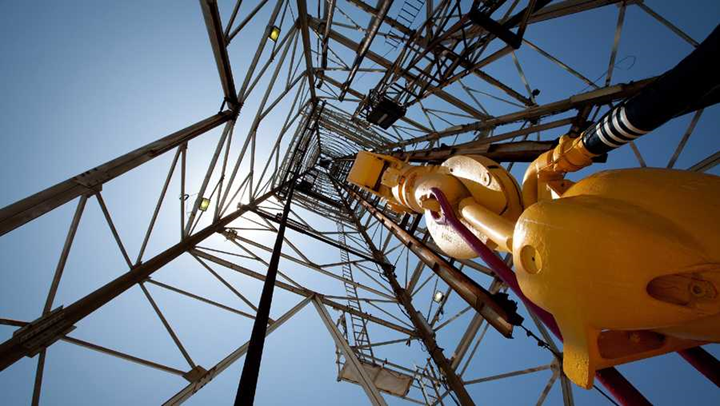
SACRAMENTO, Calif. – The California Supreme Court ruled Thursday that Monterey County cannot enforce a voter-approved ban on new oil and gas wells, a decision that comes amid an ongoing battle over how the state should address the health and climate impacts of fossil fuel extraction.
The ruling comes a day after environmental advocates announced a plan to try to enshrine a state law banning new gas and oil wells near homes, schools and hospitals as the oil industry vies for voters to overturn it. Voters could face dueling measures on the November 2024 ballot.
The court’s decision dealt a blow to local advocates, who have been fighting for years to change the practices of the oil industry. Voters in the county first approved the ban in 2016, shortly after which Chevron sued. The state Supreme Court said the state, not the county, has the authority to regulate certain methods of oil production that would have been banned by the measure.
Laura Solorio, president of Protect Monterey County, which pushed to get the local initiative passed, said she was surprised and disappointed by the ruling.
“We need to really pressure legislators to develop better regulations to ban new oil and gas drilling in the state,” Solorio said.
The initiative, known as Measure Z, set out to ban fracking, which involves injecting fluids into the ground to help oil come up; as well as new oil and gas wells; and another practice known as wastewater injection.
“Chevron is pleased that this decision brings an end to seven years of litigation and appeals,” said Jeffrey Dintzer, a lawyer representing Chevron, in a statement.
Dintzer said the energy industry in California “is crucial to both the state and local economies.”
In 2022, Central Coast’s Monterey County was the third largest oil producer in the state, producing 5.1 million barrels annually, according to the state’s Department of Conservation. That’s compared to 88 million barrels produced in Kern County in California’s Central Valley, and slightly behind Los Angeles County, which produces nearly 9 million barrels onshore.
Proponents of Measure Z remain hopeful the ruling will not have a rippling effect on other local measures. The Los Angeles city council voted last year to ban new oil and gas drilling. In San Benito County, which is south of the San Francisco Bay Area, residents voted to ban fracking in 2014.
The California State Association of Counties filed a legal document asking the state Supreme Court to uphold the measure, arguing local governments have long held authority to limit oil operations and regulate where wells can be located.
The Supreme Court did not issue a decision on the measure’s ban on fracking, a practice not currently used in Monterey County, which is 100 miles (161 kilometers) south of San Francisco. At the state level, Gov. Gavin Newsom said in 2021 that California should stop issuing fracking permits by 2024.
Passing Measure Z was a way for voters to implement “popular and common-sense health protections” after the county board of supervisors rejected a fracking ban, said Hollin Kretzmann, a lawyer with the Center for Biological Diversity’s Climate Law Institute.
“It’s about oil and gas, but it’s also about the will of the voters and being able to take control and make decisions about your health and the direction of your county and city at the local level,” Kretzmann said.
The fight in Monterey County reflects a larger dispute between California’s Democratic leaders and the oil and gas industry.
California has made itself known for setting ambitious goals to transition toward renewable energy sources, as in the goal to remove as many carbon emissions as it releases by 2045. But while the state produces about half as much crude oil each day as it did in the 2000s, it is still also among the top oil producers in the country, according to the U.S. Department of Energy. It trails behind states that include Texas, New Mexico and North Dakota.
Newsom’s administration has passed numerous laws and regulations aimed at shrinking the oil and gas industry. He wants to halt all oil drilling in the state by 2045 and signed a law last year to ban new wells within 3,200 feet (975 meters) of homes, schools, parks and other community sites.
That law was put on hold because the oil industry qualified a referendum to ask voters to overturn it in November 2024. Environmental advocates launched a campaign Wednesday to put a separate measure on the ballot to try to keep the law.
“People who live next to oil wells get very, very sick. Californians who live next to this stuff, they have headaches, nosebleeds, nausea,” said Kassie Siegel, director of the nonprofit Center for Biological Diversity’s Climate Law Institute. “You do not want the oil company moving in next door.”
The California Independent Petroleum Association is behind the referendum to ask voters to overturn the law, and the group collected enough signatures earlier this year to put it on the ballot. Rock Zierman, the group’s CEO, said keeping the law would burden oil companies in California at a time when they already have to follow what he called some of the strictest environmental and labor laws in the world.
The Legislature is weighing whether to change the referendum process, so Californians don’t get confused about whether they’re voting to uphold or to overturn a law. The legislation would have voters decide to either “keep the law” or to “overturn the law.” That would mean a departure from a “yes” vote to keep the law or a “no” vote to overturn it.
Source: Associated Press
August 3, 2023

